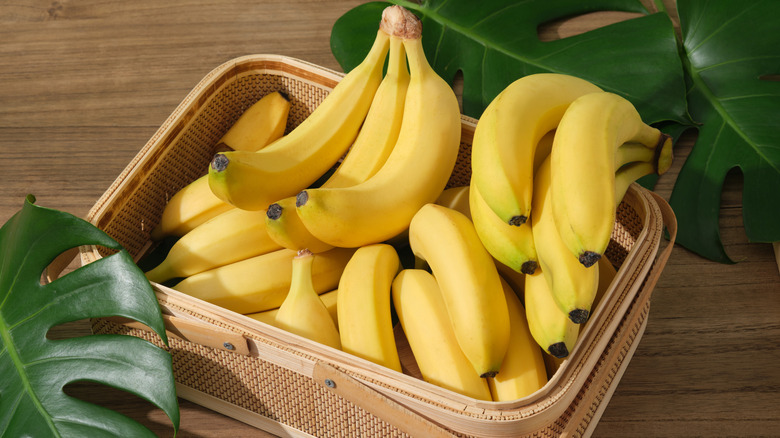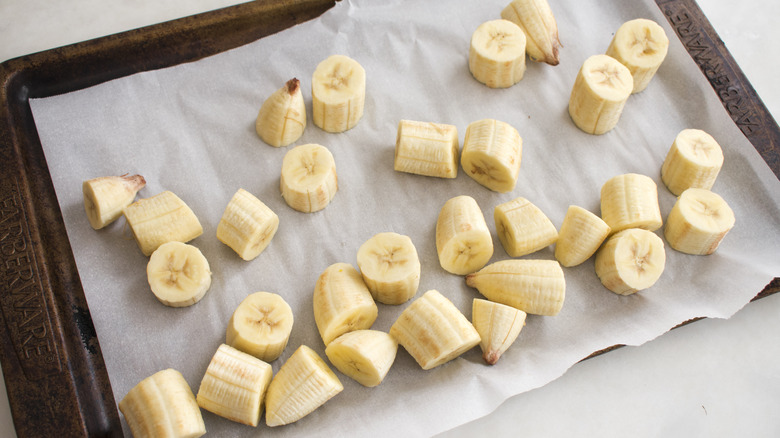Is It Safe To Make Canned Bananas At Home?
Bananas are an affordable and delicious favorite for many people. But within a few days to a week, they can turn from delightfully yellow and firm snacks to blackened, shriveled, overripe mush. If you've bought too many at the supermarket (or live in an area where you can grow bananas at home), you may be tempted to try to preserve your extra through the familiar canning process. However, for health and safety reasons, you're better off avoiding it.
Stopping the growth of harmful bacteria or other organisms in your food is always the top concern when canning, including the dreaded and potentially deadly botulism. To prevent this rare and serious disease, the CDC advises against canning low-acid foods with home canning methods, like submerging in boiling water or using a multi-cooker device. This applies to bananas along with fresh vegetables, meat and fish, and some varieties of tomatoes.
Even those with the equipment and familiarity with pressure canning techniques should avoid canning bananas. There's a lack of reputable research on canning bananas, meaning it's uncertain how precisely how long and at what temperature they would need to be processed at to ensure they're safe. It is worth noting that bananas can be used as an ingredient in certain canned preserves, but only those with enough acid added to render them safe.
Alternatives to canning bananas
Those who need to preserve bananas should instead look to other options, including freezing bananas. This method is as simple as peeling them and immediately sticking them in the freezer, either whole or sliced, for easy defrosting. In any case, don't stick them in the freezer and forget about them; one of the commonly believed false facts about bananas is that they can be frozen forever when, in reality, they should be used within three to six months for best quality.
Another alternative to canning is banana chips, which can be made in an oven, air fryer, or dedicated dehydrator. This method preserves your bananas for six to 12 months when stored in an airtight container.
Don't let this revelation turn you off canned fruit in general. There are several types of canned fruit you should buy for reasons ranging from convenience to affordability. These include pineapple, stone fruits like peaches, and tomatoes, which are biologically fruits, not vegetables.

